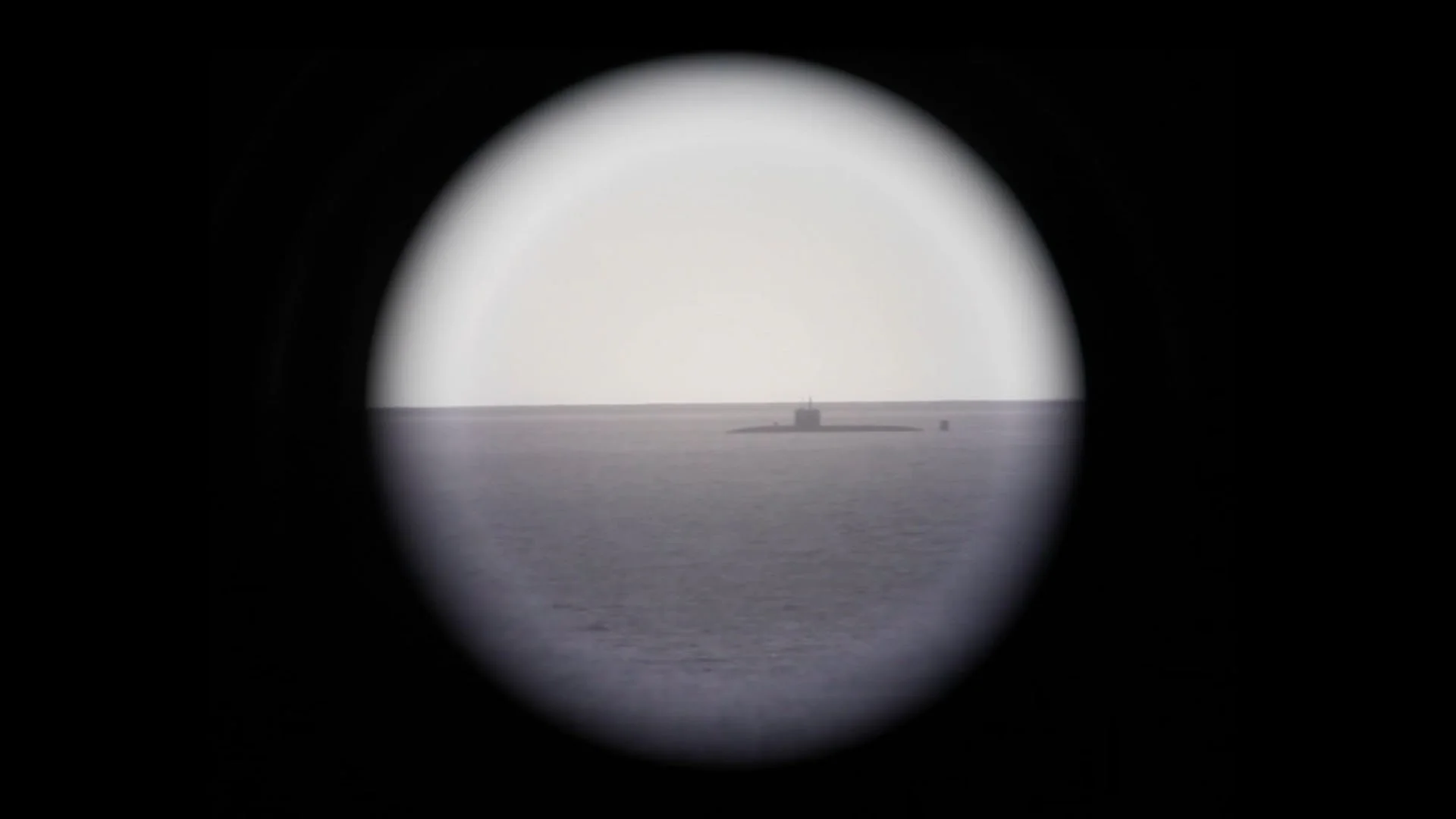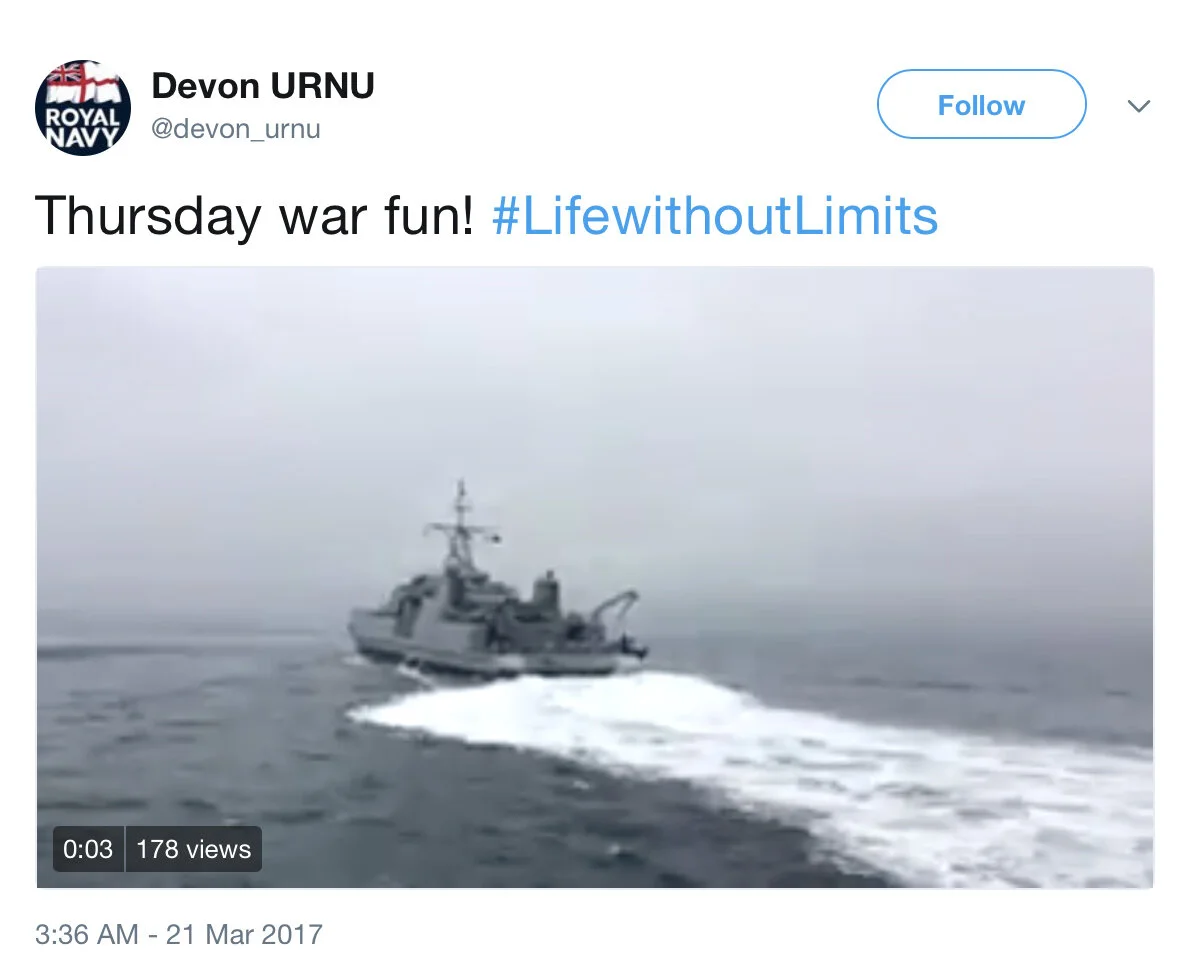Margareta Kern, ‘Thursday War’, HD video still, (2025, ongoing) work-in-development. Courtesy of the artist.
Thursday War by Margareta Kern traces how militarism utilises cinematic technologies of vision and simulation to script violence into everyday life.
Filmed from the artist’s kitchen window over several years, Thursday War documents the relentless presence of naval exercises off the coast of Cornwall. Using a birdwatching lens, Kern deliberately frames naval manoeuvres through circular, grainy images that evoke both telescopic observation and military optics. Submarines and warships drift across the horizon with deliberate, cinematic slowness - their glacial movements making perceptible what typically remains obscured: the production time of perpetual war. Kern’s ‘slow images’ counter the adrenaline-fueled war imagery of Hollywood films with the repetitive and the unheroic. They capture the unsettling duality of war games – their mundane repetition belying an undercurrent of menace. Thursday War exposes how this ‘everyday’ infrastructure of surveillance and militarism renders coastal horizons into a stage for perpetual war rehearsals - where war’s normalisation is performed through the slow choreography of preparedness.
Kern’s work extends beyond documentation into a wider exploration on how military exercises deploy elaborate performative fictions - from invented terrorist groups to fictional nations "Brownia" and "Ginger" – that conflate the imaginary and the real, transforming the Thursday War from routine drills into a racialised, militarised script. Thursday War thus reveals war rehearsals as scripted performances where cinematic and theatre techniques (role-play, pre-enactment, simulated scenarios) collapse preparation into war production. Crucially, Kern’s work shows that these constructed scenarios do not merely simulate conflict but actively generate the ideological frameworks that produce and sustain violence.
Through constant war rehearsals and preparedness drills, Kern’s work lays bare liberal militarism’s performative contradictions - its simultaneous production and disavowal of violence – amplified by today’s escalating militarisation masked as peacekeeping and humanitarianism.
As part of developing Thursday War, Margareta Kern is currently working on a specially commissioned sound score in collaboration with the acclaimed New York City-based cellist and composer Julia Kent and the award-winning Bosnian-born, German-based soprano Ljiljana Winkler.
Development of this project is supported by the Arts Council England DYCP Grant.
*‘'Thursday War' is the Royal Navy's colloquial term for regular war-fighting exercises conducted from the naval harbour in Devonport, Plymouth (UK). Historically culminating on Thursdays, these drills now occur on any day of the week - including weekends.
To follow the project please join my mailing list or contact me to view an extract of the work.


